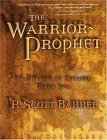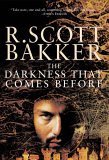Please Don’t Judge My Book by Its Cover
How many times have you seen the cover art for an anticipated book and wanted to scream? How many books have you passed over because of that terrible cover, only to find out later that it actually is a quality read? This is the long way of saying that I generally loathe cover art for SF books. It really makes me want to hurl, preferably all over those Harlequin romance wanna-be covers.
Yes, I often choose not read books in public because of the silly cover art; or I’ll choose a book with relatively benign cover art to avoid those accusing glances from the guy sitting next to me on the plane; sometimes I just leave the jacket at home.
Why is the cover art so bad? Is it because publishers think their audience demands these types of covers? Do people actually want them – am I alone in my cover-art despair? Look at the European versions – while they are often bad, they are almost universally better than we get here in the US. Is there a conspiracy among the literary elite, the proverbial ‘Ivory Tower’, to keep SF from gaining any respect by dressing it in ridiculous clothing? Am I just searching for excuses for my insecurities?
Now, I know that while I rant on this, things are actually getting better. There are actually ‘epic fantasy’ series out there without dragons and maidens and other clichés on the cover. You can pick up a ‘space opera’ that doesn’t have some strange looking planet with a spaceship gracing its cover. Some of the latest ‘urban fantasy’ and ‘magical realism’ have truly great art on the covers, often creepy at that. Are publishers and cover artists finally getting it? I really hope so.
I’ll restrain my desire to douse the SF section in my local bookstore with gasoline, light it, and cackle maniacally in the flickering light from my soapbox, for now anyway. But, please, any of you who can actually have a say in this matter, stop insulting my intelligence with such truly terrible and juvenile cover art.


